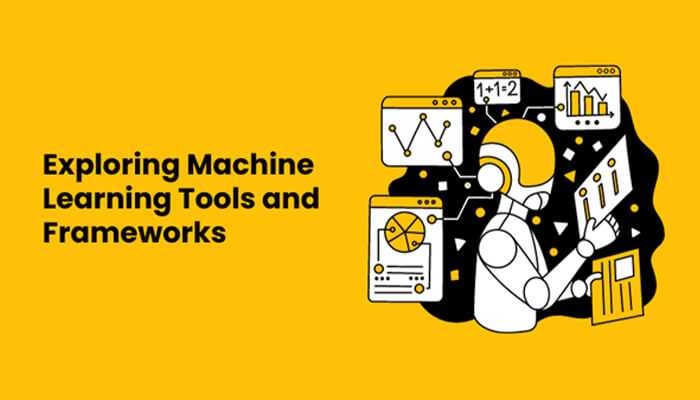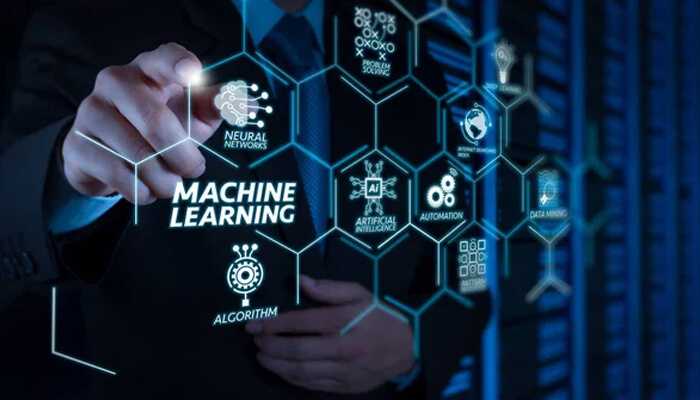Artificial Intelligence and Machine Learning tools are gaining remarkable traction. The need for qualified workers in this industry has increased as organizations and industries seek to exploit the capabilities of AI and ML. Many people are contemplating taking an Artificial Intelligence and Machine Learning Course to get the essential information and abilities.
Machine Learning is the process of training machines to improve their performance on a certain task, and AI enthusiasts can use various tools and frameworks to maximize their potential. In this detailed blog post, we will dig into the intriguing realm of Machine Learning uses, examine its fundamental ideas, and throw light on the critical tools and frameworks that power this cutting-edge technology.
Table of Contents
- Definition of Machine Learning
- Machine Learning Tools
- Machine Learning Frameworks
- Conclusion
Definition of Machine Learning
It’s essential to comprehend the fundamental principles of Machine Learning technology before delving into its tools and frameworks. Artificial Intelligence involves creating algorithms and statistical models through a process called Machine Learning.
These models enable computers to learn and predict or make judgments without being explicitly programmed. This approach is based on analyzing extensive amounts of data, which allows computers to detect patterns, make decisions, and improve their performance continuously.
Machine Learning Tools
Let us now turn our attention to the tools that enable Machine Learning practitioners to build intelligent systems and applications. The Machine Learning tool landscape is extensive, catering to a wide variety of demands and experience levels. Here are some of the most often-used tools in the field:
Python
Python’s Machine learning tool is easy to use, libraries (NumPy, pandas, sci-kit-learn), and a supportive community make it popular for Machine Learning.
TensorFlow
Machine learning tools Google’s TensorFlow is an open-source framework for creating and deploying Machine Learning models, including deep neural networks.
PyTorch
Machine learning tools PyTorch is another excellent open-source deep learning framework recognized for its dynamic computation graph, which makes it versatile for research and development.
Scikit-learn
This library contains tools for data analysis and modeling that are both easy and efficient. It’s great for both beginners and specialists, with a diverse set of algorithms and tools.
Keras
Machine Learning tools Keras is a high-level API used with TensorFlow or other backends to simplify developing and training deep learning models.
Jupyter Notebooks
Machine Learning Tools Jupyter is an interactive programming environment where users can create and share documents with live code, equations, visualizations, and narrative text. It is ideal for exploring data and prototyping models.
Frameworks for Machine Learning
Frameworks are essential parts of the machine learning ecosystem, just like tools. The framework and libraries needed to build and implement Machine Learning models efficiently are provided by frameworks. Here are some noteworthy frameworks:
Scikit-learn
Although classified as a library, Scikit-learn also offers a framework-like structure for developing Machine Learning models, making it a flexible alternative for a wide range of tasks.
Apache Spark
Machine Learning Framework Apache Spark is an open-source framework that is commonly used for processing large-scale data and implementing machine learning algorithms. It is particularly useful for managing massive datasets.
H2O.ai
Machine Learning framework H2O.ai is an open-source machine learning platform that offers user-friendly interfaces and distributed computing capabilities. This platform is suitable for both data scientists and engineers. Microsoft Azure ML offers a variety of tools and services for constructing and deploying AI models in the cloud.
Conclusion
In this blog, we discussed the core ideas of Machine Learning as well as the critical tools and frameworks that power the AI and ML revolution. An Artificial Intelligence and Machine Learning course may help you get started in this fascinating sector by providing you with the information and skills you need to succeed in an ever-changing market.



